Archive | Environment RSS feed for this section
Economics, Environment, Health, Social development and protection
 Economics, Environment, Finance sector development, Health
Economics, Environment, Finance sector development, Health
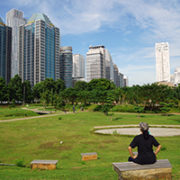 Agriculture and natural resources, Capacity development, Environment, Governance and public sector management, Health, Water
Agriculture and natural resources, Capacity development, Environment, Governance and public sector management, Health, Water
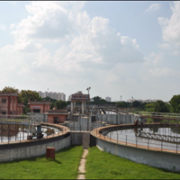 Economics, Environment, Industry and trade
Economics, Environment, Industry and trade
 Environment, Water
Environment, Water
 Environment, Water
Environment, Water
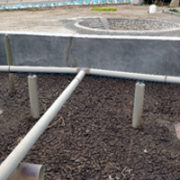 Environment, Finance sector development, Industry and trade
Environment, Finance sector development, Industry and trade
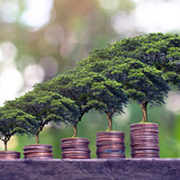 Environment, Finance sector development, Industry and trade
Environment, Finance sector development, Industry and trade
 Environment
Environment
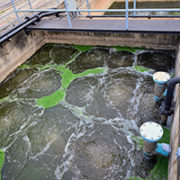 Environment, Finance sector development
Environment, Finance sector development
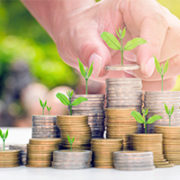
ESG investment growth amid the COVID-19 crisis

Environmental, social, and governance (ESG) investment is critical for achieving inclusive growth in Asia and can play a critical role in reducing the income inequality caused by the coronavirus disease (COVID-19).
COVID-19 highlights the need to strengthen environmental risk management and scale-up sustainable finance and investment across Asia

Like the rest of the world, Asia has been hit hard by the COVID-19 crisis. While some countries have been able to contain the spread of the virus relatively well, the disruption of supply chains, sharp decline in global demand, and the large-scale withdrawal of capital have led to severe economic contractions across the region.
Do the socioeconomic spillovers from sewage treatment plants in developing countries justify heavy investment in them?

Decent sanitation for all is crucial for rapidly urbanizing developing countries, such as India. As large volumes of wastewater in developing countries remain untreated, the investments in treatment facilities have not kept pace with the steady increases in population and urbanization and the resulting increases in wastewater volumes.
How does trade openness affect the environmental Kuznets curve?

The People’s Republic of China (PRC) has reformed and opened up its economy for 4 decades. However, accompanying the country’s fast-growing gross domestic product (GDP) and trade sector, environmental degradation, such as deteriorating water quality, land deforestation, pollution, and frequent haze plagues, has attracted a great deal of attention.
Composite Water Management Index: A pathway to solve the water crisis in India

The National Institution for Transforming India (NITI Aayog) and, more importantly, the citizens of India have acknowledged that the country is undergoing the “worst water crisis” in its history—and they are making commendable efforts to address it. They have proposed a comprehensive index to create awareness and to enable effective water management for the Indian states. In June 2018, NITI Aayog, the premier think tank for the Government of India, proposed the Composite Water Management Index, a tool to assess and improve the efficiency of water resource management.
“Commitment” as a success factor for fecal sludge management

Leh, a high-altitude cold desert in India, is a popular tourist destination hosting around 250,000 visitors annually. At present, the poorly designed septic tanks and soak pits installed by households, hotels, and guesthouses to contain fecal sludge are posing a serious threat to groundwater contamination. To cater to the demand for fecal sludge management (FSM), the Municipal Committee of Leh (MCL) partnered with a private company called Blue Water Company (BWC) and a technical nongovernment organization named BORDA in 2017 to provide an end-to-end FSM service, including pit emptying and operation of a sludge treatment plant.
Green finance for sustainable investment

To place the Asian economies onto a sustainable development pathway requires an unprecedented shift in investment away from industries relying intensively on greenhouse gases, fossil fuels, and natural resources toward more resource-efficient technologies and business models. The finance sector will have to play a central role in this green transformation. Important aspects of green finance are sustainable investment and banking, where investment and lending decisions are taken based on environmental screening and risk assessment to meet sustainability standards, as well as insurance services that cover environmental and climate risk.
Sustainable funding schemes for the development of waste management projects in Asia

For many years, cities have been the engines of economic growth in Asia. However, this growth has brought the immense challenge of the daily generation of millions of tons of solid waste, especially in mega cities. The amount of solid waste being generated in Asia is drastically increasing as 44 million people are being added to city populations every year, and many cities are placing burdens on municipal as well as central governments. By 2050, 50% of the world’s population will live in the Asia and Pacific region (ADB, 2011).
Minimizing the Cost of Fecal Sludge Management through Co-Treatment

The City Development Initiative for Asia, the Asian Development Bank, other multilateral agencies, and national governments are funding sewerage systems for medium and large cities throughout Asia. Even at “full” sewerage coverage, cities often find that some, if not many, buildings are still reliant on septic tanks, pits, or other onsite systems. For cities with or that are planning sewerage systems, co-treatment may enable citywide sanitation by minimizing the need for standalone fecal sludge treatment plants.
Green bonds experience in the Nordic countries

According to the Asian Development Bank, developing countries in Asia will need to invest an estimated $26 trillion through 2030, or $1.7 trillion per year, in infrastructure to maintain growth, eliminate poverty, and address climate change. Given their limited public resources, developing countries in Asia will need to find ways to mobilize and leverage significant amounts of private capital to meet the investment requirements for the Paris Agreement and the Sustainable Development Goals.


Search
Subscribe / Connect to Asia Pathways
Subjects
- Accelerating Progress in Gender Equality
- Addressing Remaining Poverty and Reducing Inequality
- Agriculture and natural resources
- Capacity development
- Climate change
- Economics
- Education
- Energy
- Environment
- Finance sector development
- Gender
- Governance and public sector management
- Health
- Industry and trade
- Information and Communications Technology
- Infrastructure
- Making Cities More Livable
- Miscellaneous
- Population
- Poverty
- Private sector development
- Regional cooperation and integration
- Sanitation
- Social development and protection
- Strengthening Governance and Institutional Capacity
- Subjects
- Transport
- Uncategorized
- Urban development
- Video Blog
- Water
Recent Posts
- Investing in Childcare a Win for Women and the Economy
- Flush and Flourish: Upgraded Toilets Can Transform Lives in Rural Asia
- New Ways for Climate Finance and Development in Asia and the Pacific
- Rethinking High-Rise Living: Balancing Urban Growth and Sustainability in Asia’s Cities
- Navigating Linear Transport Infrastructure Through Conservation Landscapes




Recent Comments